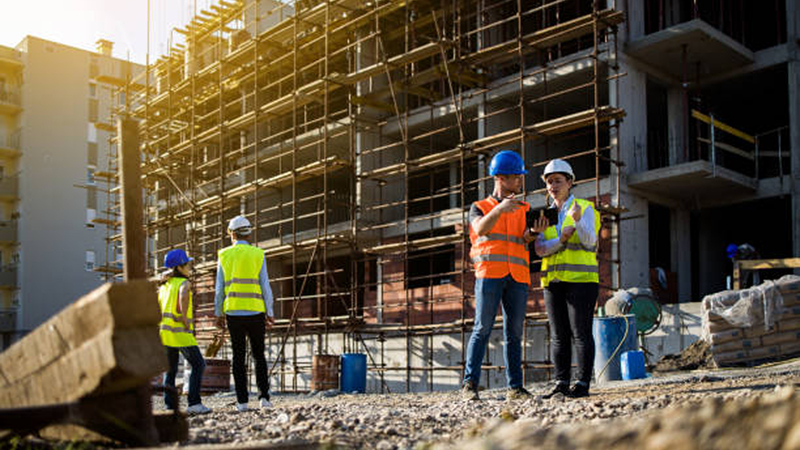The change of the UK construction industry into the digital space has changed the way companies look for new projects. For most customers, the first search for building services starts online, meaning that your company’s first impression is now made on Google rather than at the job site. A good construction industry is critical to distinguish your business, generate leads, and continue to get local work. The right direction means you can reach homeowners, developers, and businesses at exactly the point of need for your expertise. This guide will take you through tried and tested ideas from our experts to get you started discovering, selecting and utilizing the best seo keywords for construction so your company can gain rankings, build trust, and convert local searchers into customers.
Why Keywords Matter in SEO for the Construction Industry
Your keywords drive the association between the service your customer types into Google and the solutions provided by your organization. In a niche, location-based business like construction, choosing the right seo for the construction industry means they only connect with people who actually need the services you provide. Industry research shows, “contractors near me,” “builders [city],” and “home renovation specialists [region]” are some of the most valuable local search terms, and companies that rank in those categories receive a majority of high-value leads.
With Google now favoring content that reflects real expertise, real project specific details, and people-first service, it has never been more crucial to select relatable, specific keywords.
Step-by-Step Guide to Keyword Research for SEO Construction Industry
1. Use the Right Tools
Start by exploring what real clients are searching for. Top recommended tools include:
- Google Keyword Planner: Great for local keyword ideas and search volumes.
- Ubersuggest: Offers service- and topic-specific terms (“eco home builder Manchester,” “kitchen renovation near me”).
- SEMrush, Moz, or KeywordTool.io: Deep analytics, competitor ranking insights, and help with uncovering long-tail opportunities.
Tip: Real-world project photos and case studies often provide inspiration for long-tail keywords that competitors may miss.
2. Build a Mix of Keyword Types
Construction industry SEO success means combining different types of keywords:
- General/High-Volume Keywords: e.g., “construction,” “builders,” “contractor,” “construction company.” These have a major search volume, “construction” alone boasts around 1,000,000 searches monthly in the UK.
- Local/Geo-Targeted Keywords: e.g., “construction company in London,” “builders near me,” “general contractor [city].” These connect you with high-intent searchers ready to hire locally.
- Niche/Service-Specific Keywords: Focus on your specialties, such as “green building contractor,” “custom home builders,” or “office remodeling company.”
- Project/Problem-Based Keywords: Feature common client needs: “emergency home repair near me,” “loft conversion experts [location],” or “affordable kitchen remodelling UK.”
- Long-Tail Phrases: Phrases like “commercial building contractor for retail shops Bristol,” with fewer searches but a higher chance to convert, since they reflect very specific needs.
3. Analyse Competitors
Research the rankings and content of your strongest local competitors:
- What keywords do they target on service, project, or about pages?
- How do they use location and specialty signals in their site navigation and blog posts?
- Are they answering common customer questions, and what can you do differently?
This analysis helps refine your seo strategy for the construction industry and spot gaps.
4. Map Keywords to Specific Pages
Assign your chosen seo keywords for construction to the right spots across your website:
- Homepage: Major services (“Construction company in [city],” “Residential and commercial builders”)
- Individual service pages: Focused keywords for each offering (“Loft conversions London,” “Passive house specialists Yorkshire”)
- Blog/Article pages: Target long-tail, seasonal, or problem-based phrases (“How to choose a contractor for home extension in Birmingham?”)
Best practice: Each keyword should have one dedicated page, avoid spreading the same phrase across multiple destinations, which confuses Google and weakens rankings.
5. Optimise for Local SEO Essentials
Local results mean business for construction firms:
- Optimise and keep your Google Business Profile up to date, including real customer photos, reviews, services offered, and location details.
- Make sure your Name, Address, and Phone Number (NAP) are consistent across your site and all other directories.
- Create location landing pages if you cover multiple areas, add local case studies, customer reviews, and photos for authenticity.
Did you know? Appearing in Google’s ‘Local Pack’ can triple your local website visits and phone calls, making local SEO a must for the sector.
6. Create Content That Solves Problems
Google values real, helpful content from construction professionals. Write articles, guides, and FAQs that:
- Answer the top questions your clients ask.
- Share “before and after” stories, including unexpected problems and how they were solved.
- Include photos and tips from actual job sites.
- Use your researched seo keywords for construction naturally, focus on being clear and helpful, not on stuffing keywords.
Proven SEO Strategies in Action: Real-World Insights
- A London-based refurbishment company used project-specific keywords (“office fit-out specialists Canary Wharf”) on dedicated pages, and reported a 60% jump in local website enquiries within six months of refreshing their SEO construction industry strategy.
- Home builders who shared step-by-step guides using local and service keywords (“how to ensure planning permission for home extension Surrey”) attracted both new clients and high-authority backlinks from local advice portals.
- Firms that updated their Google Business Profile with weekly project photos and responded to all reviews saw better visibility and trust, outperforming larger but less active competitors.
Mistakes to Avoid with SEO for Construction Industry
- Stuffing pages with unrelated keywords (aka keyword stuffing) diminishes user experience, and ranking.
- Copying the text of competitors or using generic content, Google prefers unique, people-first stories.
- Not paying attention to whether you are mobile-friendly and the speed of your site – more than 60% of construction searches are on smartphones.
- Neglecting to update your listings or respond to reviews, which tells both Google and potential customers that you are inactive.
Final Thoughts
To succeed in a digital world, you must consider construction industry SEO as a continuous, hands-on process. You should begin by researching and selecting the best seo keywords for construction using a variety of high-volume, local, specialty, and long-tail options. You will map these keywords to the pertinent pages of your website, optimize for local rankings, and tell authentic, actionable stories from the experience of construction work. This will ensure your company will consistently not only rank higher but will also engage with real customers exactly when they need your service.







